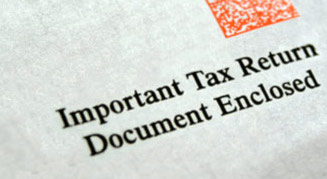 The receipt of a tax notice in the mail might come as a surprise but, should not be a stress-inducing event. There are many reasons why the Federal and/or State taxing authorities issue these notices. In many cases, the notices can be resolved both quickly and painlessly.
The receipt of a tax notice in the mail might come as a surprise but, should not be a stress-inducing event. There are many reasons why the Federal and/or State taxing authorities issue these notices. In many cases, the notices can be resolved both quickly and painlessly.
With the myriad of tax laws that the Federal and/or State taxing authorities are charged to enforce, there are instances, more often than you think, that letters are automatically generated from the respective computer systems. A typical notice will describe the reason for the communication, where applicable, the tax effect of the proposed change and, an explanation of interest and/or penalties assessment(s). The notice will also contain a response due date and a telephone number to contact the taxing agency. It is important to point out that no taxing authority will initiate any action by telephone. If you receive such a call, hang up the phone without revealing any personal information. It is best to respond to any notice by written communication and send it certified return receipt to the taxing agency. That will ensure a written record trail should any information you provide get lost or misplaced.
The event that generates the most common type of tax notice occurs when the information supplied by the taxpayer does not match information supplied by third parties. This includes wage statements (W-2), interest and dividend statements (1099-INT, 1099-DIV), capital gain transactions (1099-B), retirement income statements (1099-R), Social Security income (1099-SSA) and statements of income from flow through entities (K-1). The taxing agency will send a notice outlining the differences in the amounts reported and will propose an adjustment to your tax account, which could result in an additional tax due or additional refund. The taxpayer is provided an opportunity to either agree or disagree with the proposal and is given instructions on how to proceed in each instance. If a taxpayer disagrees with an adjustment, they should write a clear and succinct response, explaining the reason for the disagreement and provide supporting documentation, where necessary.
Other instances that can generate notices are when the taxing agency misapplies or miscalculates the amount of estimated taxes posted to a taxpayers’ account. This may not change the tax computation, however, it may affect the amount of tax due or tax to be refunded. Sometimes the agency is right, sometimes they are not. Having good records (copies of cancelled checks in this case) is the best remedy.
Other notices may question the amounts reported and/or the application of tax law used by the taxpayer. In this instance, the response may require a detailed explanation of the figures used and/or a detailed discussion of the tax law relied upon in the tax assertion.
Other notices simply seek information from the taxpayer. Even in this electronic age where the bulk of tax information is transmitted electronically to the taxing authorities, sometimes information supplied by traditional methods gets lost and/or misplaced.
Tax notices should not be taken lightly, regardless of the situation. Failure to respond to a tax notice may result in wage garnishments, tax levies, liens and ultimate forfeiture of property in order to satisfy the tax debt. In addition, failure to respond to a tax notice may affect your rights to contest the proposed assessment and ability to resolve the tax matter. The best course of action is to resolve the matter yourself or with a competent tax resolution representative.
Ron Friedman, principal of Ron Friedman, CPA, has over fifteen years of tax and accounting experience, most notably in tax resolution matters. He can be reached at ron@ronfriedmancpa.com or 914-830-4369.






